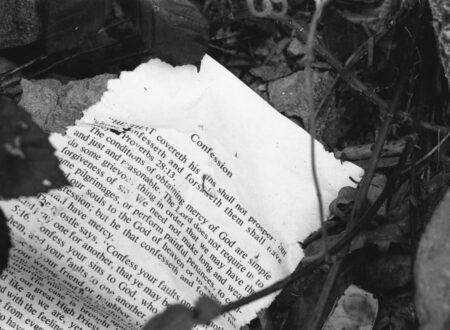There was once a small city with only a few people in it. And a powerful king came against it, surrounded it and built huge siege works against it. Now there lived in that city a man poor but wise, and he saved the city by his wisdom. But nobody remembered that poor man. So I said, “Wisdom is better than strength.” But the poor man’s wisdom is despised, and his words are no longer heeded. (Ecclesiastes 9:14-16 NIV)
Consider the personalities, places, and patterns in this story. The small city represents an occupied territory of boundaries, personal property, and a place where individuals are born into families to learn, live, work, love, and die. The powerful king represents a worldly threat and enemy to the city and its few occupants. The man poor but wise in this story could be any one of us. The reason the city was saved was not simply because a man lived in the city; he was a certain type of man. This passage does not tell us exactly why the man was poor, but we know it was not by accident; making wisdom our own is expensive and a choice (Proverbs 3:13 and 16:16).
This story reminds us that some things are worth defending, there are powerful enemies outside our walls, and we must be individually prepared if we are going to protect and preserve our tribe, heritage, and legacy. With wisdom, the poor man has a chance to resist darkness and defend his city. Without wisdom, the poor man and all he cares about will likely be lost, so each man who cares about being capable and equipped will make getting wisdom a very high priority.
Since the fear of the Lord is the beginning of wisdom, and He is its source, getting wisdom is an ongoing choice to learn about Him and His creation (Psalm 11:10, Proverbs 9:10, Exodus 28:3). If we do not begin a search for truth with a sincere reverence for spiritual mysteries that we cannot measure or quantify, wisdom will allude us. We can learn a great deal by accumulating knowledge regarding truth and reality claims about particulars, but man can never experience the fullness of wisdom apart from the mysterious and supernatural God. Wisdom is a God-given awareness, desire, knowledge, and understanding of our place and roll in His Kingdom agenda that equips and inspires us to make excellent choices.
Wisdom in action is an ongoing process of seeking, discovering, and applying Biblical principles to personal and public policies. Wisdom presents itself in concrete ways in the real world. We become wise because we have chosen, are choosing, and will choose to put God first and meditate on His precepts both day and night in spite of all the temptations of the world trying to distract us (Psalms 1, Luke 8:14). A modern wise man reads deeply and broadly, studies processes and patterns, learns as much as he can, but his foundation is built on the chief Cornerstone (Ephesians 2:20, John 4:11).
God’s faithfulness to make the poor man wise should give us hope because it reveals an authority greater than the power of this world. When it looks like all is lost and we are powerless against sin, wickedness, and chaos, we must remember how good our God has been in the past; He is in the business of making common men uncommon. He still turns cowards into heroes, sinners into saints, graves into gardens, and gives wisdom to those who seek Him.
– Richard Harwood from The Guild




